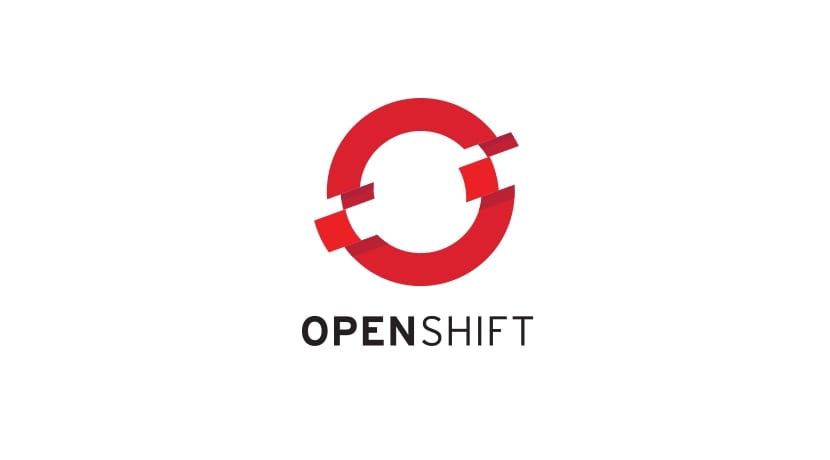
Next month we will have available RedHat OpenShift 4, the latest version of the most comprehensive Kubernetes enterprise platform. Red Hat is a world leader in open source solutions for the business world and proof of this is this launch. The new version reveals a redesign to address the complex realities of container orchestration in production systems. It is designed to deliver a cloud-like experience across the hybrid cloud through automated updates across all Kubernetes deployments.
OpenShift offers greater flexibility for developers and the support of Kubernetes Operators to establish itself as a more secure and consistent foundation for modern and emerging cloud-native workloads. It is already used by more than 1000 organizations around the world and in a multitude of different sectors, companies such as Santander, Kohl's, BP, Deutsche Bank, Emirates NBD, HCA Healthcare, etc.
Simplification and automation everywhere:
OpenShift 4 will simplify hybrid and multicloud deployments (According to IDC, by 2020, more than 90% of organizations will have a multicloud strategy in place) to accelerate the way IT organizations deploy new applications, helping companies thrive and differentiate in an increasingly competitive market. This simplification and automation have some key points:
- Self-Managed Platform for Hybrid Cloud providing a cloud-like experience through automatic software updates and lifecycle management across the entire hybrid cloud, powered by the Red Hat Enterprise Linux and Red Hat Enterprise Linux CoreOS trust foundation. This allows for increased security, auditability, repeatability, ease of management, and user experience.
- Heterogeneous adaptability and support, available in the coming months on major public cloud providers, including Alibaba, Amazon Web Services (AWS), Google Cloud, IBM Cloud, Microsoft Azure, private cloud technologies such as OpenStack, virtualization platforms and bare-metal servers.
- Optimized full stack installation with an automated process that facilitates the rapid implementation of Kubernetes for business.
- Simplified application deployments and lifecycle management with Kubernetes Operators. Red Hat has pioneered complex, stateful applications on Kubernetes with operators that automate application maintenance, scaling, and failover. OpenShift 4 now offers Red Hat OpenShift Certified Operators. Working in conjunction with the broader partner ecosystem, OpenShift 4 includes a broad set of applications to run as-a-service through the hybrid cloud.
Accredited Enterprise Kubernetes:
Red Hat OpenShift Container Platform is certified, Kubernetes compliant, and validated by the Cloud Native Computing Foundation (CNCF). It is the only Kubernetes enterprise offering built on the backbone of the world's leading enterprise Linux platform, backed by Red Hat's open source expertise, supported ecosystem, and leadership. As a leading contributor to the Kubernetes community, Red Hat refines Kubernetes for Business on OpenShift 4, providing a more robust and secure code base, while preserving key innovations from the source communities.
To provide a more flexible deployment footprint while maintaining better security and stability, OpenShift 4 introduces Red Hat Enterprise Linux Core OS, an OpenShift-specific embedded variant of Red Hat Enterprise Linux. Red Hat Enterprise Linux CoreOS provides a greater variety of options for enterprises in deploying enterprise-grade Kubernetes, offering a lightweight, fully immutable, and container-optimized Linux OS distribution. In this variant, security features and stability remain paramount, with automatic updates managed by Kubernetes and enabled by OpenShift at the push of a button. This helps reduce maintenance and improve business productivity.
OpenShift 4 is backed by Red Hat's award-winning technical support and extensive professional services, including Red Hat Consulting. Using its technical expertise and strategic advice and analysis, Red Hat helps IT organizations create solutions that meet current and future needs.
Empowering developers to innovate:
Application development is imperative for many IT organizations, given its role in accelerating digital transformation. OpenShift 4 supports the changing needs of application development as a consistent platform to optimize developer productivity with:
- Automation, application and self-service services to help developers scale their applications by provisioning on-demand application services and providing automation for carrier-backed containerized application development and deployment.
- Red Hat CodeReady Workspaces enable developers to harness the power of containers and Kubernetes, while working with familiar integrated development environment (IDE) tools that they use every day. CodeReady Workspaces are more consistent, collaborative, and secure than when running containers or virtual machines (VMs) on a laptop. This includes the tools and dependencies required to code, build, test, run, and debug containerized applications in a web-based IDE.
- OpenShift Service Mesh, which combines the Istio, Jaeger, and Kiali projects as a single capability that encodes communication logic for microservices-based application architectures, freeing up developer teams to focus on business-add logic.
- Knative to create serverless applications in Developer Preview, making Kubernetes an ideal platform for developing, deploying, and managing serverless or function-as-a-service (FaaS) workloads. Knative features include scale-to-zero, autoscaling, in-cluster development, and eventing frameworks for developing cloud-native applications on Kubernetes. It allows developers to focus on writing code by hiding complex parts of development, deploying and managing their applications.
- KEDA (Kubernetes-based event-driven autoscaling), a collaboration between Microsoft and Red Hat that supports the serverless event-driven container deployment on Kubernetes, enabling Azure Functions in OpenShift, in Developer Preview. This enables accelerated development of serverless and event-driven functions in hybrid cloud and on-premises installations with Red Hat OpenShift.
- Operator-Enabled Application Environments on OpenShift with Red Hat Middleware, providing the power of OpenShift Certified Operators to critical integration technologies and process automation. This enables IT organizations to unify their development environments around the capabilities of the operators, making it easier for developers to focus exclusively on delivering next-generation services and applications without having to worry about upgrading or maintaining the tools.
- Red Hat OpenShift Container Storage 4 Enabled for Carriers, currently in development. It offers highly scalable persistent storage for cloud-native applications that require features such as encryption, replication, and availability across the hybrid cloud. Application teams can dynamically provision persistent volumes for a wide variety of workload categories, including SQL / NoSQL databases, CI / CD pipelines, and AI / ML.
Red Hat continues to grow and unstoppable ...